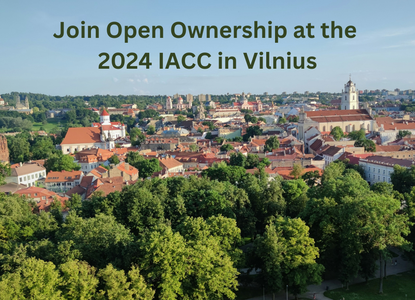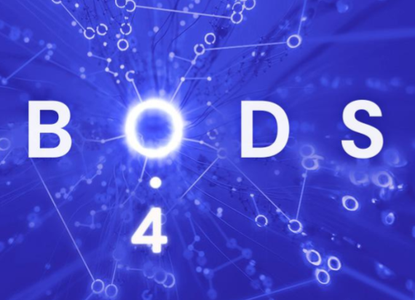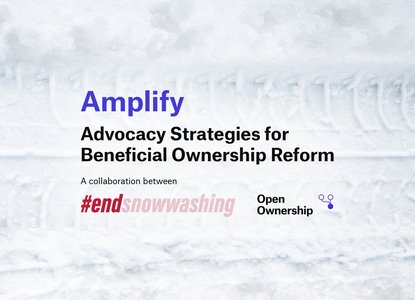Webinar: Master complex UBO investigations with advanced graph technology
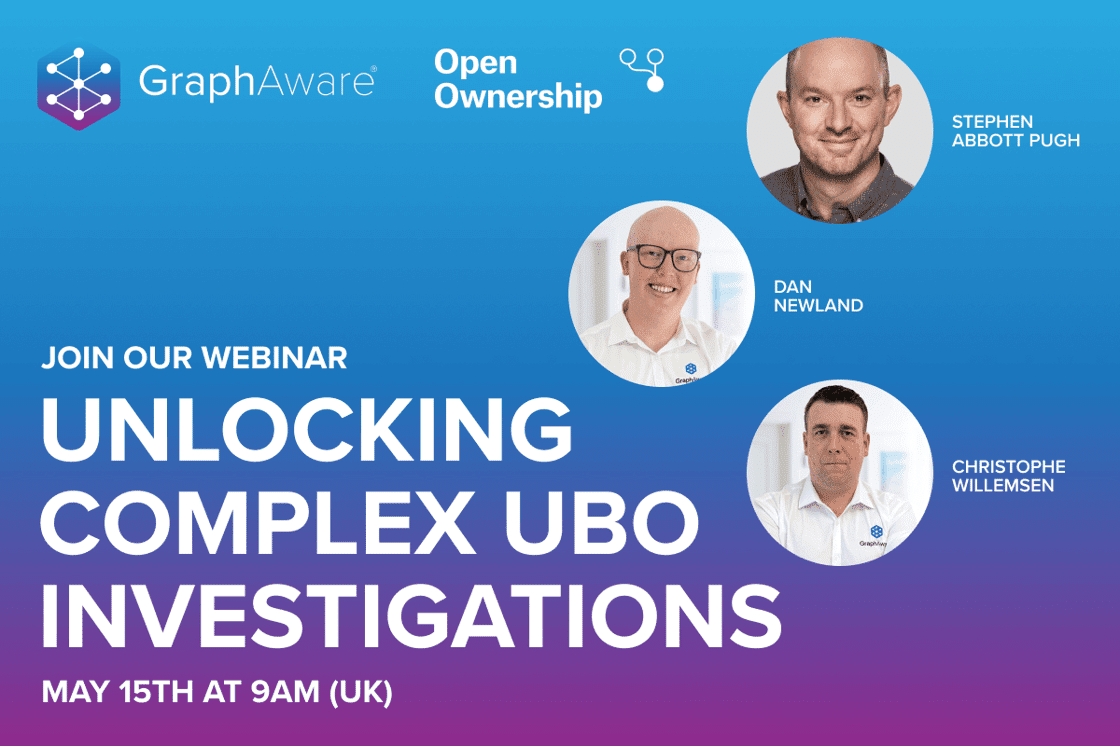
This free webinar showed how collaborative exchange of beneficial ownership information across borders is essential for ease of business, fraud prevention, and anti-money laundering efforts. It was hosted by GraphAware, which delivers next-generation, mission-critical capabilities powered by graph technology, data science, and machine learning. The invited guest was Stephen Abbott Pugh, Head of Technology at Open Ownership.
Open Ownership has developed the Beneficial Ownership Data Standard (BODS). BODS is an open standard, providing guidance and a structured template for collecting, sharing and using machine-readable data on beneficial ownership.
Without common standards, combining and analysing data from different sources can be difficult, expensive and time-consuming. However, the real value of beneficial ownership data can be realised when it can be correctly understood.
With BODS, data from different companies and countries can be combined, visualised, and analysed. Bringing together data from a variety of sources can give us insights into sprawling or complicated ownership and control structures.
Ahead of the joint webinar, GraphAware loaded BODS data from Open Ownership into Hume, its graph data visualisation and exploration tool (see image below). BODS data was then combined with sanctions data and enhanced using entity resolution to demonstrate how it can support detailed investigations by law enforcement or analysts.
Watch the recording:
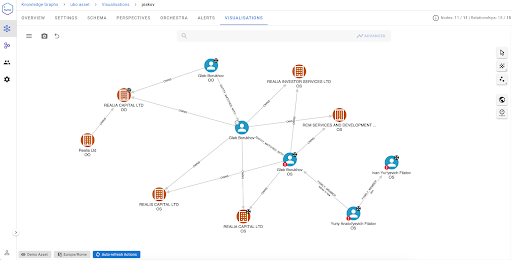
BODS data from Open Ownership imported into Hume, GraphAware’s graph data visualisation and exploration tool.
Webinar agenda: a step-by-step guide
- The webinar started by focusing on BO registers, which stand at the crossroads of transparency, accountability, and global security. Their purpose is clear: to deter money laundering, combat terrorist financing, and unveil secret corporate ownership.
Challenges persist: Some countries limit public access to BO data for privacy reasons (e.g. the US), while others, like the EU, prioritise transparency. Balancing between transparency and affordability remains a technological challenge. Explore the complexities of different registers and their impact on the global business landscape with Dan Newland, GraphAware’s General Manager for Australia. - Next, Stephen Abbott Pugh, Head of Technology at Open Ownership, explained how international standards relating to beneficial ownership have been updated in recent years, and how Open Ownership helps countries both collect and use high-quality data. He provided a worldwide picture of where things stand with the implementation of beneficial ownership registers, and explained why BODS could play a crucial role in enhancing future data sharing and use.
- Finally, Christophe Willemsen, GraphAware’s Chief Technology Officer, led a live demo and showed how investigators and organisations can use combined data in Hume to ingest, connect and analyse big data located in different sources. We covered how to:
- Uncover hidden ownership structures: dive deep into ownership networks that conventional methods miss
- Analyse complex networks: explore intricate connections between companies and individuals
- Detect anomalies within BO data
- Beneficial ownership relationships: Gain profound insights into true ownership
Related articles and publications
Publication type
Event
Blog post
Topics
Beneficial Ownership Data Standard
Sections
Technology
Open Ownership Principles
Structured data
